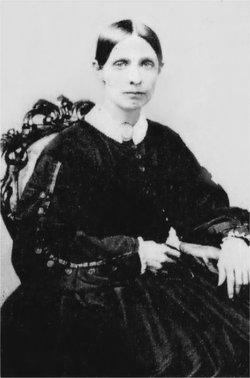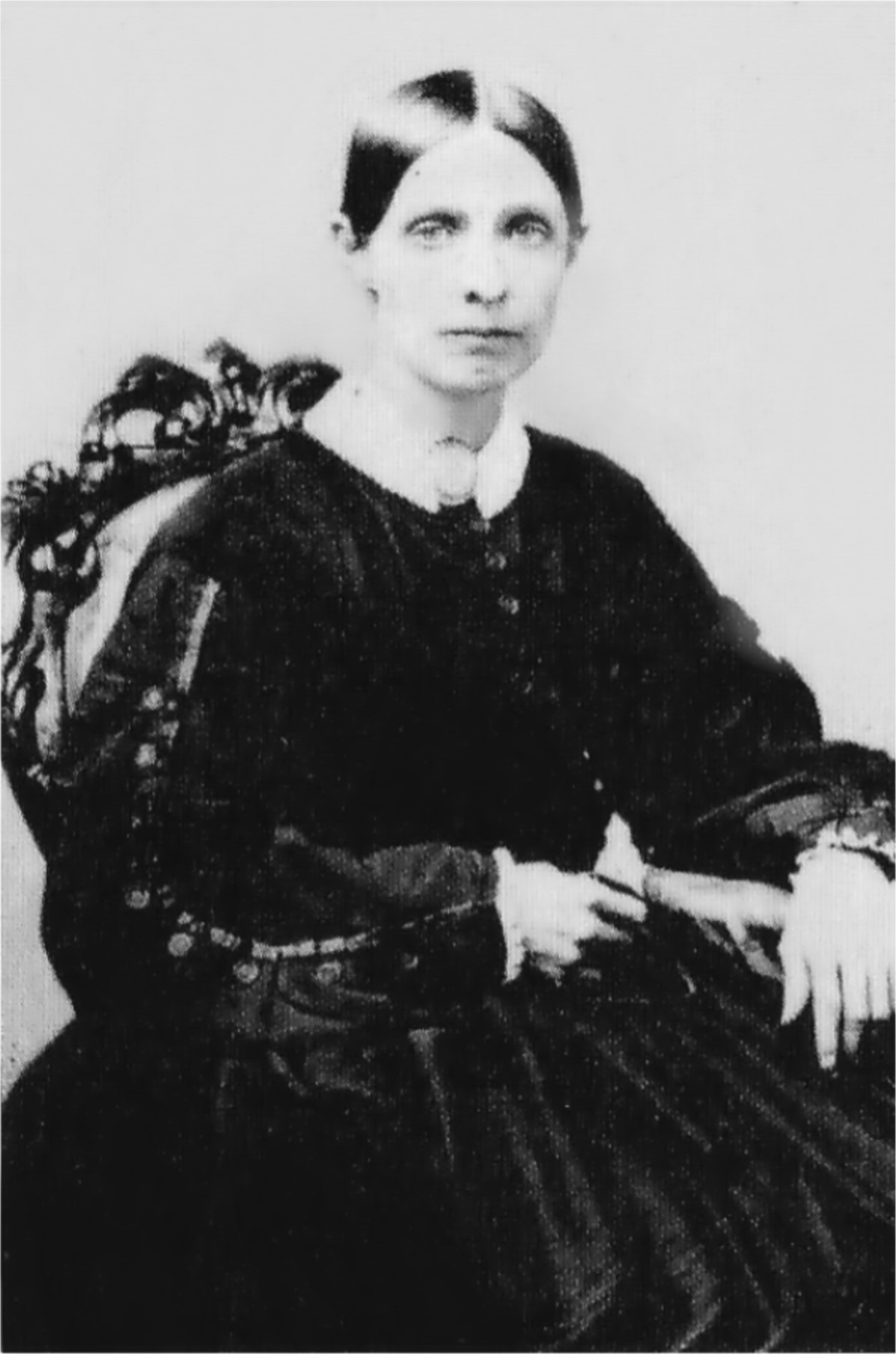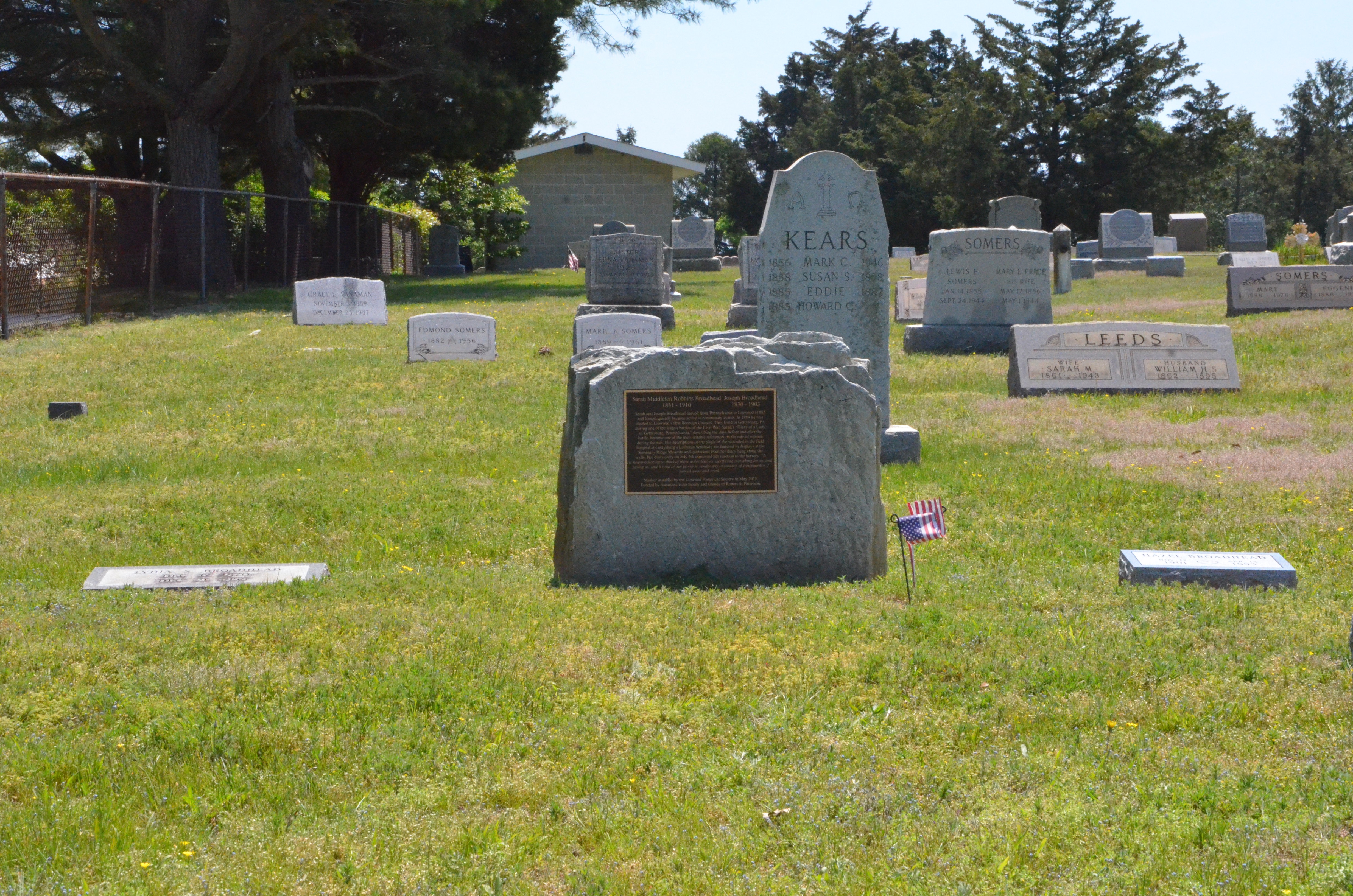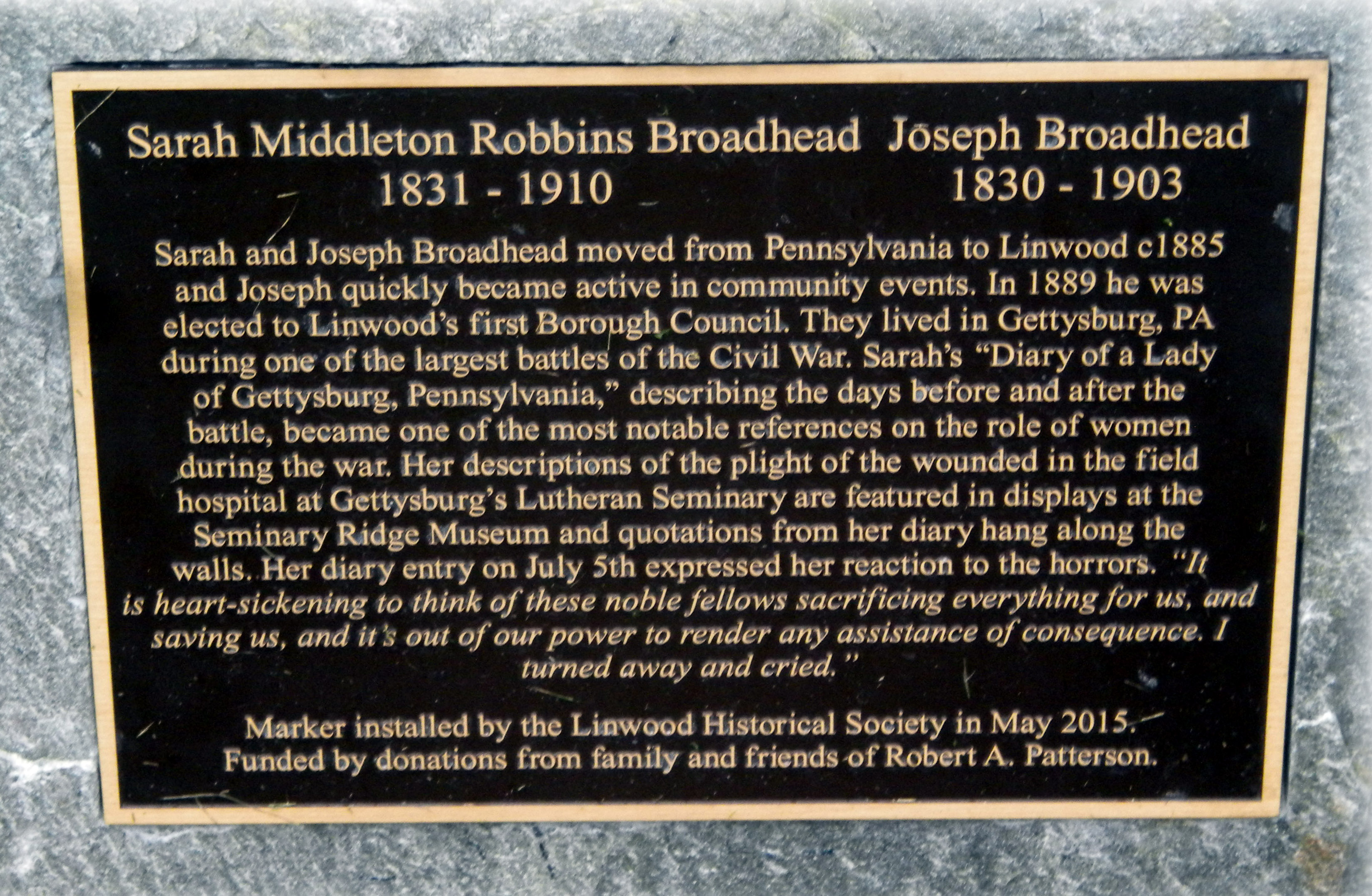Joseph and Sarah Broadhead had been citizens of Gettysburg, PA for about four years when the Civil War broke out. Their daughter Mary Catherine was born shortly after they moved there in 1859. Joseph was an express messenger for the railroad and served in the Gettysburg Zouave unit in 1862 and 1863. He was out of town on a mission when word came that the rebel army was on the way to Gettysburg.
Sarah Broadhead was one of many hundreds of women who went out every day to care for the wounded scattered throughout the fields and streets during the 3-day battle of Gettysburg. What earned her a place in history was that she recorded what she saw and what she felt as her town was bombarded by cannon fire and invaded by Confederate soldiers. She described what it was like during the shelling and the constant cannon fire. She wrote in her diary every day what she and other women did
and what it was like to provide care for the casualties. At one point she took 3 wounded soldiers into her home to provide care.
In addition, she tended many wounded soldiers in the cellar of the Lutheran Seminary who had been moved there for safety because the Confederates had placed their artillery behind the seminary and the shells were landing too close. Then there were heavy rains which flooded the cellar and in the confusion, the hospital personnel didn't think to check on these men. Sarah called their attention to the problem and the wounded were moved to the fourth floor. Her diary says there were “near one hundred” men moved. This is recorded in her entry for July 8, 1863.
A section of the diary covering the days from June 15 to July 14 were published in a small paperback book to raise money for the U.S. Sanitary Commission, a relief agency providing care for the sick and wounded.
Her descriptions first surfaced nationally in a 1948 radio show which later became a television series called “You Are There“ narrated by Walter Cronkite. She became a household word during the Ken Burns Civil War television series in 1990. Quotations from her “Diary of a Lady of Gettysburg” were used
throughout the series.
Quotations from her diary are featured throughout the walls of the Seminary Ridge Museum honoring her contributions to the
history of this famous battle. Sarah gave care to her own generation but, through her diary, she also gave future generations the lasting gift of her perspective on what she
and other people of the time experienced.
Joseph and Sarah Broadhead had been citizens of Gettysburg, PA for about four years when the Civil War broke out. Their daughter Mary Catherine was born shortly after they moved there in 1859. Joseph was an express messenger for the railroad and served in the Gettysburg Zouave unit in 1862 and 1863. He was out of town on a mission when word came that the rebel army was on the way to Gettysburg.
Sarah Broadhead was one of many hundreds of women who went out every day to care for the wounded scattered throughout the fields and streets during the 3-day battle of Gettysburg. What earned her a place in history was that she recorded what she saw and what she felt as her town was bombarded by cannon fire and invaded by Confederate soldiers. She described what it was like during the shelling and the constant cannon fire. She wrote in her diary every day what she and other women did
and what it was like to provide care for the casualties. At one point she took 3 wounded soldiers into her home to provide care.
In addition, she tended many wounded soldiers in the cellar of the Lutheran Seminary who had been moved there for safety because the Confederates had placed their artillery behind the seminary and the shells were landing too close. Then there were heavy rains which flooded the cellar and in the confusion, the hospital personnel didn't think to check on these men. Sarah called their attention to the problem and the wounded were moved to the fourth floor. Her diary says there were “near one hundred” men moved. This is recorded in her entry for July 8, 1863.
A section of the diary covering the days from June 15 to July 14 were published in a small paperback book to raise money for the U.S. Sanitary Commission, a relief agency providing care for the sick and wounded.
Her descriptions first surfaced nationally in a 1948 radio show which later became a television series called “You Are There“ narrated by Walter Cronkite. She became a household word during the Ken Burns Civil War television series in 1990. Quotations from her “Diary of a Lady of Gettysburg” were used
throughout the series.
Quotations from her diary are featured throughout the walls of the Seminary Ridge Museum honoring her contributions to the
history of this famous battle. Sarah gave care to her own generation but, through her diary, she also gave future generations the lasting gift of her perspective on what she
and other people of the time experienced.
Family Members
Sponsored by Ancestry
Advertisement
Records on Ancestry
Advertisement


















